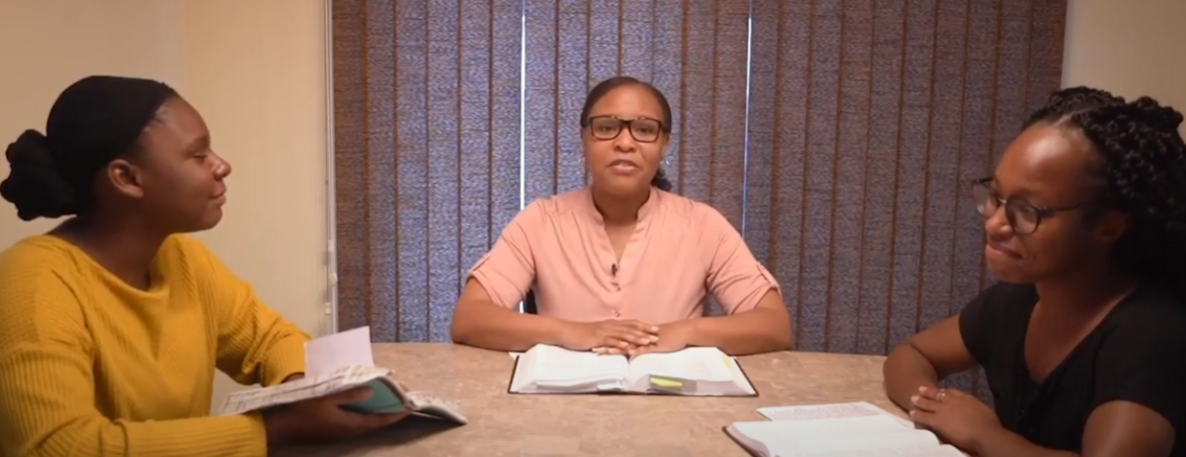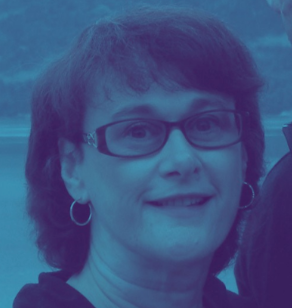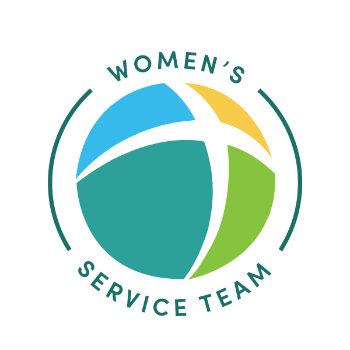A New Look at the Old Testament
Mary Benton
Hampton Roads Church of Christ, USA
I have been a disciple of Christ for almost 40 years. Now, please understand that I am not boasting. Instead, I share this as a way to explain what follows: namely, that in the last 39+ years, I have never read the Old Testament. Oh, I have read my favorite OT books (including Genesis, Judges, Esther, and Ruth). But I have tended to skip over those books that contain deep details: genealogies, divisions of land, numbers of people in a clan, or specifications for building an ark or a tabernacle.
Until this year…
Since January, I have facilitated a haverot group for between 4 and 12 women (depending on the day). If you are unfamiliar with the term, haver is Hebrew for ‘friend’. The term haverim dates back to Old Testament times when a group of men studying under a rabbi would get together to read, discuss, debate, and ask questions about the Scriptures - basically, reading the Bible ‘in community’. A haverot is a group of women who do the same. My husband started a haverim group at the beginning of the Pandemic, simply because he missed his relationships with the brothers in his life. I decided to organize a similar group for women. We meet via Zoom for half an hour every weekday morning, and, like the men’s group, our relationships have reached a new level of intimacy, we have a great time laughing and friendly-arguing. Most importantly, we all agree that, since beginning it in January. we have taken a deeper dive into the Old Testament than we ever have in our lives. Every single woman has had their faith challenged and changed, and now we cannot even fathom the idea of not reading the Word together every day.
Please don’t misunderstand -- reading on our own is so important for our hearts, our peace, and our spiritual growth. But reading the Bible in community is not simply reading aloud. It is taking a much deeper look into the Scriptures than many of us are used to. This is especially true when reading the Old Testament, since it is the more difficult Testament for most of us to read. In our group, we are reading what comes before and what comes after the text we are studying and making connections to see a greater picture. We are asking easy and tough questions. (We even joke that we have a master list of questions to ask God when we get to Heaven!) We wonder, what was Moses feeling during the final plague when he heard the wailing of Egyptian parents who were losing their firstborn children? Why, if Adam and Eve were told that they had dominion over every living creature, did they not use that dominion over the serpent? Why are ‘stones of remembrance’ still important to us today? How does reading about the faith and actions of Deborah and Jael in Judges 4 influence our thinking about how God uses strong, faithful women to accomplish his purposes? Our questions help us consider the situations and characters in the scriptures on a much more intimate and moving level.

Reading in community has also shown us that God is a God of details. The details of genealogies show us that God has had a plan through the centuries beginning with Abraham and that He has kept his covenant promises to this day, working through men and women, families, and individuals to carry out his plan. The details of Noah’s ark, the building of the Ark of the Covenant, and the magnificence of the tabernacle reconfirm that God’s plans, when carried out to his specifications, lead to redemption, perfection, and restored relationships with him -- things that are only possible through love and forgiveness. The sometimes strenuous-to-read lists of numbers, laws, towns, and people can seem to have little bearing on our lives today. Yet when we work through these difficult texts, we find that God’s plan has always been a glorious one that is not random, but exact. It shines a light on the fact that He is sovereign, and that He has left no detail to chance in his desire to bring his creation back into a right relationship with him. If these ‘details’ are important to God, they should be important to us, and reading in community has helped us understand this importance.
As a group, we have also been most encouraged about how much we can apply the Old Testament to our lives today. Our ‘Western’ thinking has been transformed through walking in the sandals of our forefathers and foremothers. We have stepped into the culture, the social values, and the individual experiences that guided and challenged those who came before us. Countless examples of faith, perseverance, and obedience have driven us to look deeper into our own hearts and our faith. Most importantly, we have been able to apply what we have seen and read into our own lives, learning from the victories and failures of others, and challenging ourselves and each other in the process.
Finally, in reading the Old Testament as a haverot group, we have a much deeper understanding of the arc of the story of God and his people from the Creation through the New Testament. We agree that we have come to understand so much more of the character of God - his love, his compassion, his mercy, his forgiveness, and his provision than we have ever known. The Old Testament shows us every facet of our God, and I truly believe that by reading it in community, we have come to not just know God but to experience him as well. The Hebrew word for ‘to know’ (yada) can be translated as ‘to experience’ God. That is what makes our time in this group that much more amazing and fulfilling. We don’t feel as if we are ‘there’ yet -- that we have learned everything there is to know. By no means! But we do feel as if we are on a journey with God, learning as we go and experiencing a depth of relationship with Him that we could not have obtained on our own.
As I close, I feel that it is important to note that NONE of us in the haverot is a Bible scholar, though there are some who have been reading longer. And while we may check concordances and commentaries, the true depth of our learning is from the questions we ask, the insights we share, and the willingness to be open and humble to everything that God is showing us every day.

Bio - Mary Benton serves with her husband, Tom, in the Eldership of the Hampton Roads Church in the ACR. They have been disciples for almost 40 years, and have to married and two grandchildren (and two on the way!).


Leave a comment
1 Comments
Dec 2, 2022, 5:42:43 AM
Ndu Eke - This is really illuminating. My wife and I have this same group in St. Louis and we meet on Tuesdays and Thursdays for one hour each day and also studying the OT. The deep insights and questions from different perspectives are so enriching. The knowledge of God's character especially his how he patiently and gracefully teaches his human imagers stand out. Thank you for sharing.